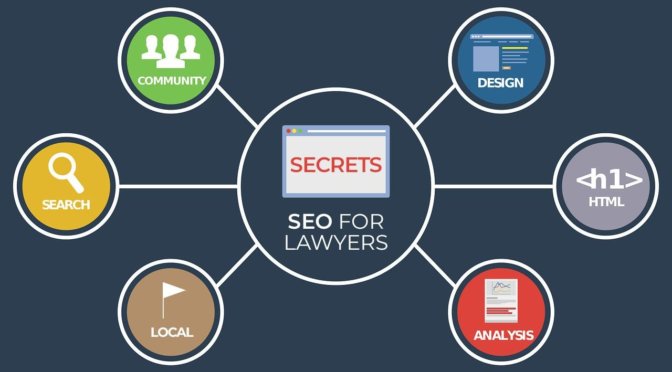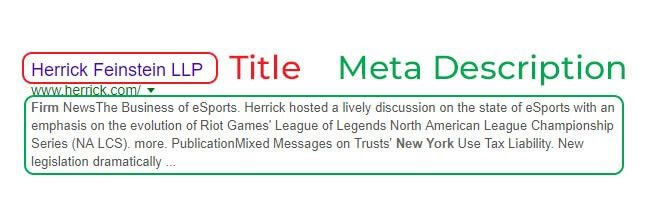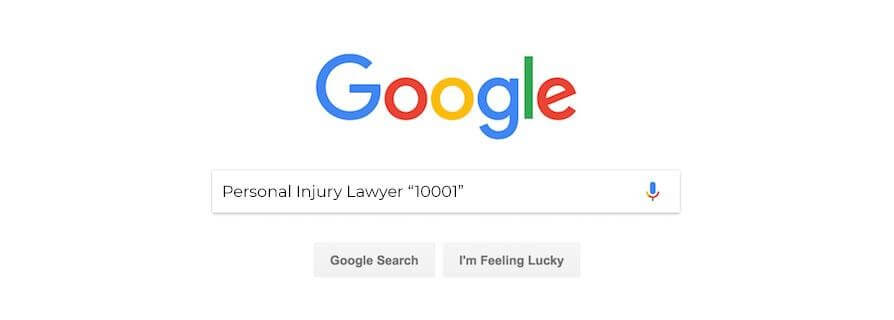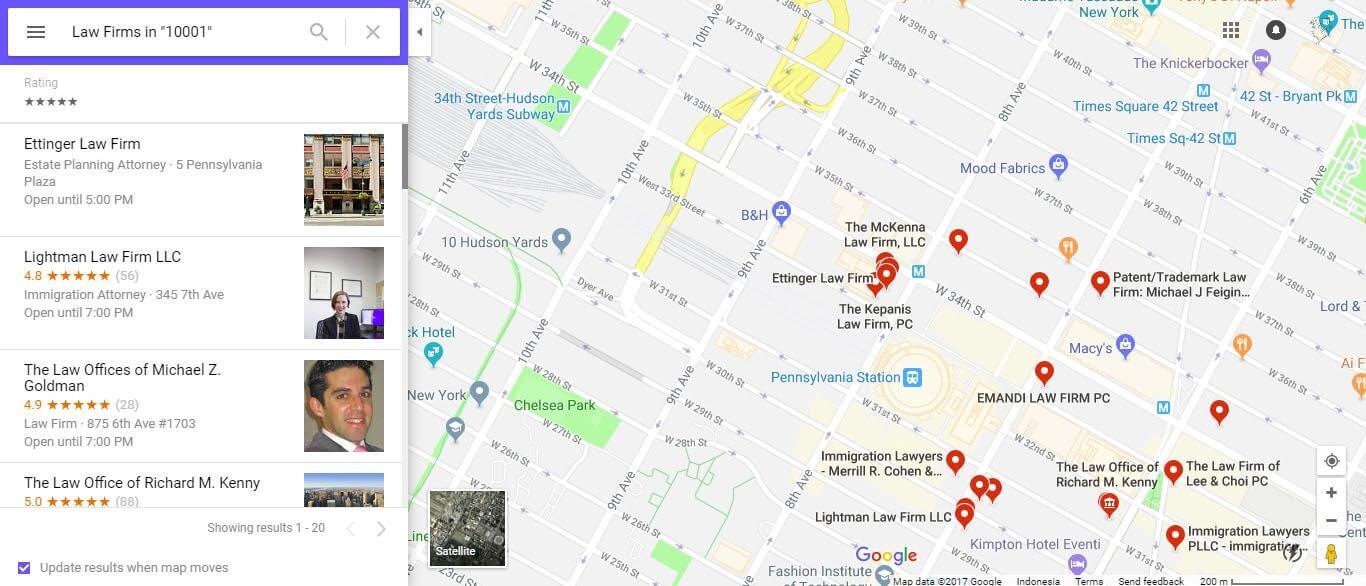If your law firm has a website, you may want to have an understanding of SEO. SEO stands for Search Engine Optimization and this helps your website get placed on the first page of search engines.
SEO for lawyers requires techniques, strategies, and sometimes coding to get your website ranked and capable of bringing prospective clients to your law firm.
Getting on the first page of any search engine (like Google, Yahoo, Bing, etc.) provides your law firm with significant benefits. You can reduce the costs of ad spending by creating an SEO focused lawyer website that allows search engines to provide you with organic traffic.
This article reveals some SEO secrets specifically for lawyers.
Onsite SEO for Lawyers
If you’re don’t understand computer coding, at the very minimum you should try to grasp the concept of onsite SEO.
In order for search engines to do their job and showcase your website in their search results, you have to give them detailed information on your website.
In your articles and web pages, there are elements known as title tags, headers, meta descriptions, and URLs. Having a solid foundation in onsite SEO will deliver successful results in the other parts of SEO found here.
When it comes to your titles to articles, best practice suggests to keep them up to 70 words in length. Anything longer and they won’t b displayed in the search results.
For the meta description, use between 150 to 160 words.
Another important feature of SEO is including a keyword. This keyword is used as a primary identifier of the page or article. Use this keyword in the title, meta description, and URL.
Your article or page should also include the keyword in a readable and non-intrusive manner. Using a keyword too often, known as keyword stuffing, can actually have a negative effect on your site’s SEO.
For lawyers, keeping your keywords and content relevant to your readers while including the appropriate title tags and meta-descriptions will be of benefit to your search engine rankings.
Schema Markup for Lawyers
Since you may be busy with clients and other aspects of legal work, SEO on your website may not be within your scope to perform.
If you intend to outsource SEO to an expert, something you may want to be aware of is Schema Markup for Attorneys. Although this may not have a significant impact from an SEO standpoint, the added coding involved provides more informative results for people using a search engine.
Schema Markup allows you to add more details to your meta-descriptions which can be displayed in the search engines. From business hours to special events, these details will be coded in a way that engines can recognize and input in the results.
For more information, please see schema markup for attorneys to understand which markups to include on your website.
Local SEO for Lawyers
Local SEO is an effective strategy to get your law firm’s website noticed by those searching in your area. There are a variety of ways you can apply local SEO to your website.
To get started, add your website to business directories (i.e. Yelp, Foursquare, Yellowbook, Google My Business, Bing Places for Business, and more).
Once you have placed your website on these directories, especially those connected to search engines like Google and Bing, when a prospective client makes a search in New York…
… your law firm is in a better position of being ranked and discovered.
Here are some statistics about local searches from Business2Community and SearchEngineLand:
- 46% of Google searches are local
- 50% of mobile searchers look for local business information (i.e. address or phone number)
- 96% of all PC owners perform local searches
If you haven’t done so already, register your law firm’s location in Google maps and other mapping engines. Whenever a prospective client performs a search in your area, your law firm will pop up.
Link Building for Lawyers
Link building can be time-consuming, however, if done correctly, it can lead to a lot of traffic to your website and inquiries for a consultation.
There are all kinds of links you can have, the most important being links placed on another website that directs to yours.
These links can be in the form of text, images, or other pieces of HTML that include a hyperlink (i.e. “href” attribute) for your website or a specific page.
Getting your links out there can be as simple as providing quality content that people share and include in their own articles, new pieces, and blogs.
If you have a partnership with other lawyers, considering exchanging their links on your website with your links on their website.
Other ways to build strong backlinks to your website include:
- Writing guest posts on other blogs and lawyer websites
- Adding your link to online resource pages
- Commenting on forums / online communities
- Writing responses on Quora
- Posting on Reddit
- Set up a Wikipedia page for your law firm
These are just a few suggestions. Backlink building requires strategy and careful planning. If you use tactics such as hacking other’s websites to inject backlinks, hiding text on your page which cannot be read by visitors but found by search engines you may be negatively impacted by search engines.
Search engines use sophisticated ways to scan the internet and gather information about your website. It knows who has links to your website and where your website is linking out.
NoFollow vs. DoFollow Links
One thing you should keep in mind is that there are different kinds of links: follow vs. no follow.
Nofollow links are those that do not give you any boost in the search engines. They simply send traffic from that website to your website. That’s it.
DoFollow links are those that give you a boost in the search engines. These links are telling search engines to rank the site.
This reason this exists is to prevent spamming, however from a lawyer’s SEO point of view, you may want to know what kind of backlink you are building and whether that will provide a benefit to your search engines results.




